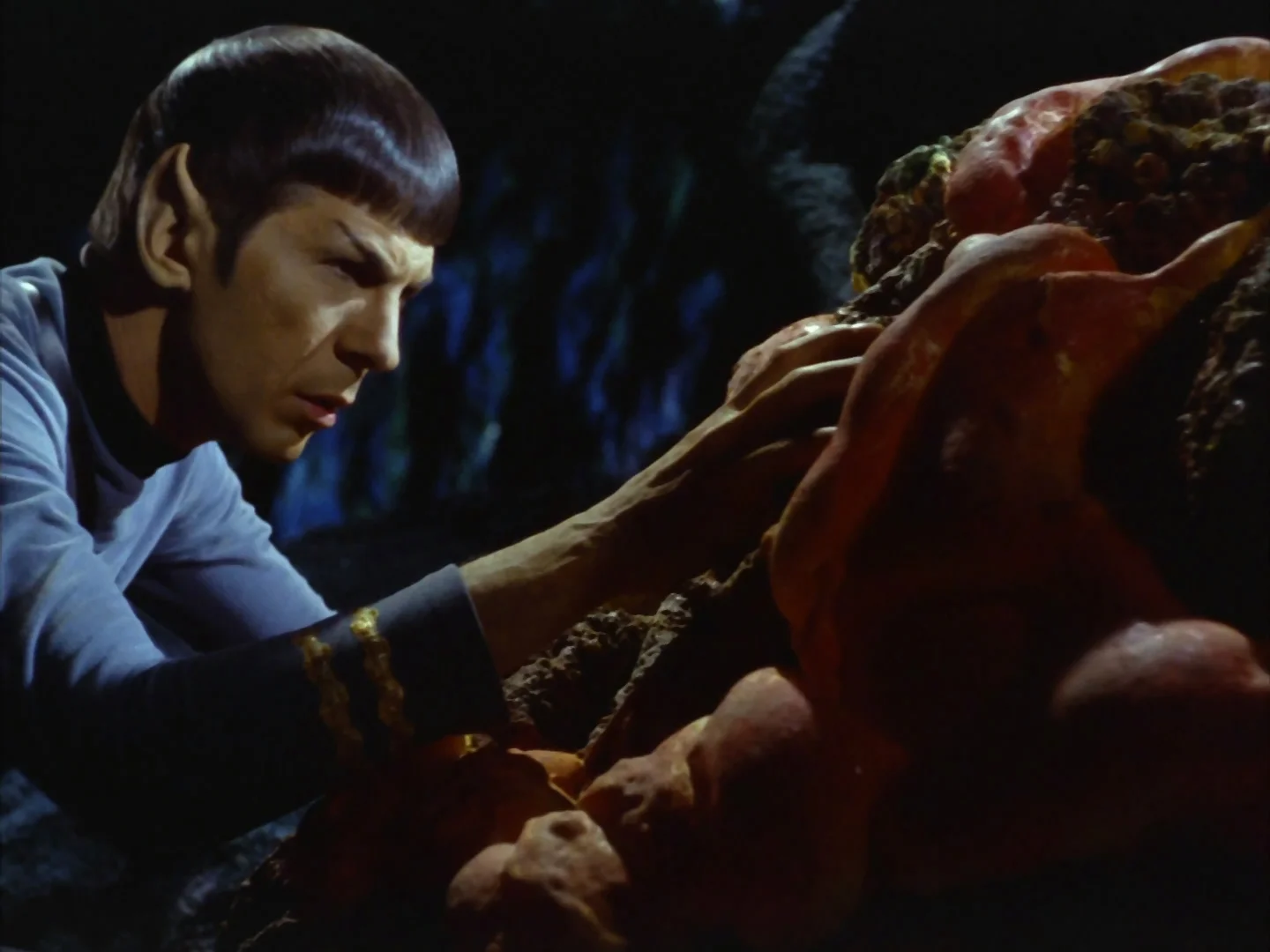by Matthew Rushing
Tony Daniel’s first Star Trek book, “Devil’s Bargain,” takes place three and a half years into the first five year mission. It feels just like an episode from an unseen season four with humor and fun, all while touching on some very important issues.
Genetically Engineered Prejudice
When the Enterprise arrives on Vesbius in response to a distress call, the human colony they find is not quite what they expect. The crew learns that in order to survive on Vesbius, the humans there have altered themselves genetically — and the planet itself — to survive. This has left them with a deep connection to the planet and a dependency on Vesbius’ biosphere to survive.
Genetic engineering is nothing new to the Star Trek universe. The Denobulans are accomplished in genetic engineering and have had mostly positive results in their society for using it. It has been another matter for humans. Genetic engineering of the late 20th century led to the creation of super-men like Khan and his army of supersolidiers. As Spock pointed out in "Space Seed," “Superior ability breeds superior ambition,” and that is exactly one of the issues that has surfaced on Vesbius. The Vesbians’ genetic change has made some of them wary of aliens, and in some cases, completely prejudiced against anyone not Vesbian.
It seems that the Julian Bashir or Hannah Fabers of genetic engineering are the anomaly, whereas Khan and his augments are the norm. A faction of the Vesbian population is a part of an extremist group known as the Exos. They, like so many mad men before them, believe that they should be the rulers of the galaxy. They believe that humans have become subservient to aliens like Vulcans, have stopped striving for greatness and instead accepted mediocrity. This leaves the Exos believing in not only their superiority but in their belief in a centralized government ruled by the strong. The attitude brings to mind people like Hitler and Khan who believed in a master race — and their own inherent greatness — which drove them to command and conquer.
This book asks difficult questions by showing us that while genetic engineering can have appalling consequences, it can also be used for incredible things as well. Not all Vesbians are hell-bent on galactic domination; In fact, most of them just want to live in peace on their planet. McCoy asks a key question a third of the way through the book as he talks to Kirk and Spock: “...When you open Pandora’s box, who knows what will come out?” This is a question that our world must contemplate as more scientific and medical breakthroughs continue advancing at a rapid rate. How do we deal with the temptations that come as a result of tampering with our genetic makeup and what sort of outcomes will we experience if and when we do?
Alien Insight
One of the highlights of this book is getting a peek into the Horta, an alien race that we only see once in Star Trek. They appeared in the episode “The Devil in the Dark,” and were silly-looking, to say the least. What Daniel does with them is marvelous. He fleshes them out into a real and vibrant race. It was wonderful to see something so alien become so interesting. The Horta are also a nice foil for the reclusive and narrow-minded Vesbians. The willingness they show in risking their lives for a people they have never met is a reflection of the highest ideals of Star Trek.
Baby Daddy Spock
Spock is put into an unusual position throughout the book. The crew is in need of the Horta’s expertise in digging, which will help them with an asteroid that is hurtling towards Vesbius. Since he is the only one who can mind-meld with the Horta, he is forced to become a father figure to the adolescent Horta so he can communicate with it. With the All-Mother dying, Spock takes on the role as All-Father to the Horta, creating some humorous moments as Spock deals with parenthood for the first time, in a very Vulcan way.
Conclusion
One of the marks of a good Original Series story is giving each of the main cast something to do, and Daniel does not disappoint. Each of the characters feels the way they do on screen and each has a moment in the spotlight, showing why they belong on the Enterprise. Kirk is the leader and lover we all know, willing to follow his heart but not at the expense of his duty. Scotty is the “miracle worker.” Bones is the voice of reason and even a bit of an action hero. Chekov and Sulu’s friendship is handled well and is something that we should see more in Star Trek literature. Daniel has captured the fun and whimsy qualities of TOS, leaving us hoping he will be asked back to the final frontier for another mission. This book receives 7 out of ten Hotra babies.



